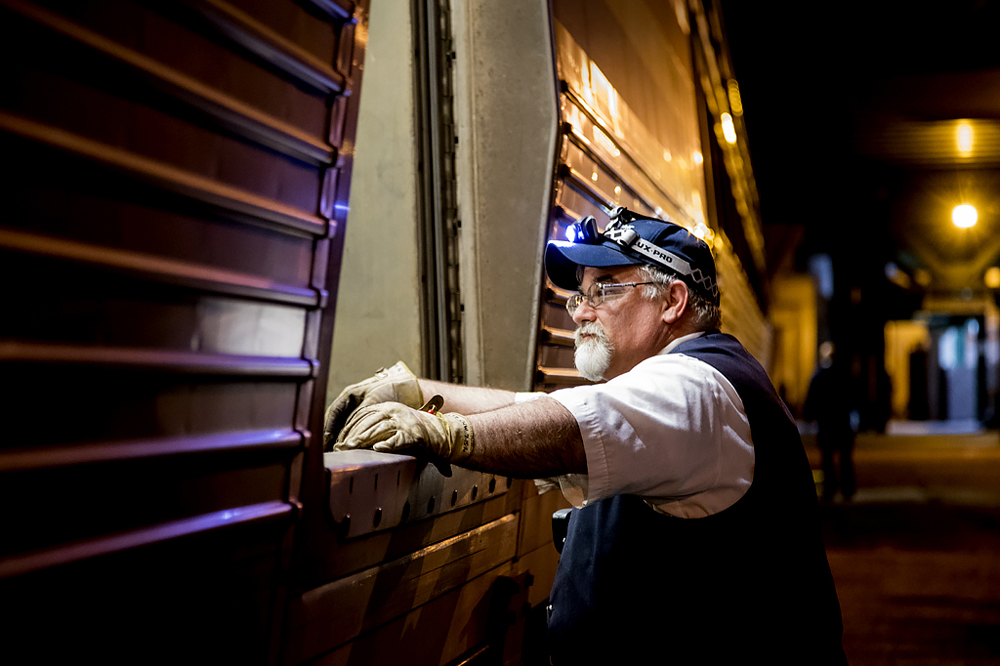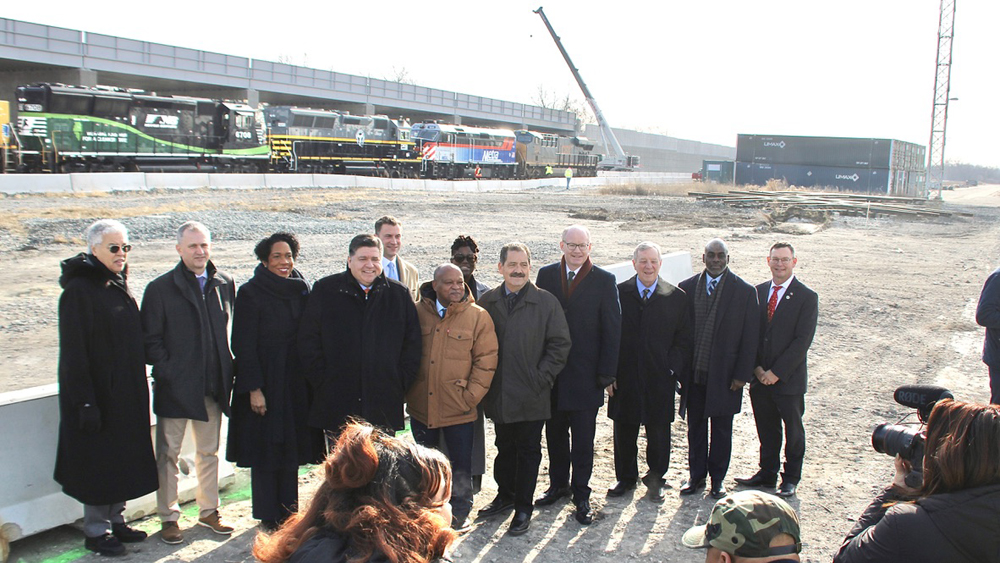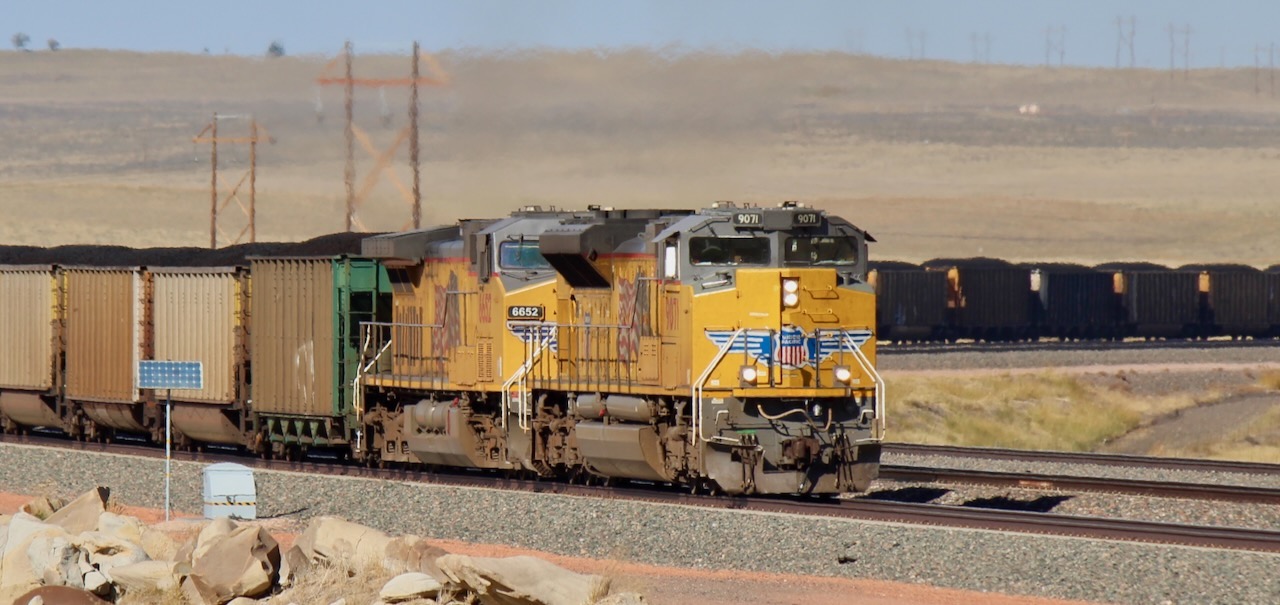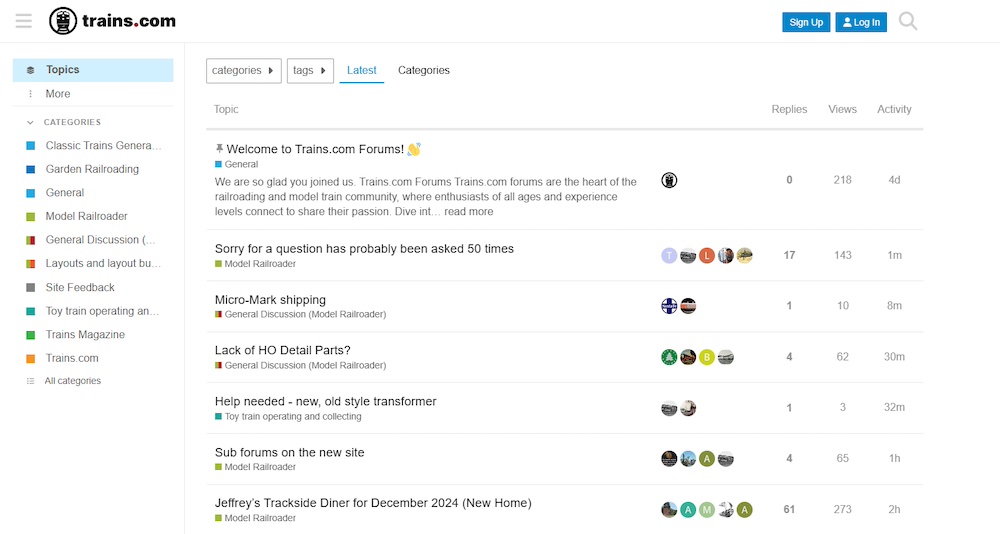
CHARLESTON, W.Va. — Some may take the physical presence of a station agent for granted, especially in a world that has learned to do more with less interaction. But the story of how West Virginia regained its only agent back helps underpin the importance of humanizing the passenger railroad experience.
In April 2018, before the COVID-19 pandemic, Amtrak announced it would eliminate the ticket agent on its triweekly Cardinal route at Charleston, West Virginia’s capital city. Ridership and a rise in e-ticket sales influenced Amtrak’s decision. Charleston had become the state’s final manned station after similar cuts at Huntington and Prince. Charleston held on, serving mostly college students, intercity travelers, and the elderly with service between Chicago and New York.
In the weeks leading up to the planned de-staffing, proponents of maintaining a station agent wrote their elected officials, and U.S. Sen. Joe Manchin (D-W.Va.) took a vocal lead on preserving an agent on site approximately 12 hours a day, three days a week.
The senator noted nearly 30% of West Virginians do not have access to reliable internet and that removing the state’s last agent from the ticket counter would hinder the passenger railroad’s ability to retain and attract new customers. Manchin believed West Virginians deserved at least one ticket agent manning a station platform, but despite voicing these concerns to then-Amtrak CEO Richard Anderson, the company did away with the agent on June 6, 2018.
But Manchin soon secured language in fiscal 2019 legislation for Transportation, Housing and Urban Development, and Related Agencies that required Amtrak to employ at least one ticket agent in every state, including West Virginia.
As a result, Charleston’s ticket agent returned in October 2020, about 28 months after Amtrak cut the position, and about seven months into the pandemic. While Cardinal ridership in Charleston fell to 5,155 in fiscal 2021, compared to 8,280 in fiscal 2019, the passenger experience may have benefitted from an on-site, albeit socially distant, agent during the peak of COVID-19.
Envision the emotions of a traveler coming to a city in lockdown, reluctant about COVID travel, looking to board a train, unaware of its whereabouts, while also trying to adhere to each detail of pandemic travel protocol. This is an opportunity where a helpful individual may carry significant clout in helping put a customer’s mind at ease when we are programmed to function in isolation and rely on technology.
An employee at a platform is a great tool in building railroad-customer rapport and enhancing the customer experience, pandemic or not. While the desire to implement cost-saving measures is understandable and may make sense at some locations, the full service of a staffed station whenever possible should be viewed as an obligation to Amtrak’s customer base.














This person is a cost that can directly related to the trains serving the station. Given the low number of passengers and no other duties it becomes very expensive relative to the revenue to have an agent. European rail lines have no checked baggage, no mail and no express packages. Express packages help pay for intercity buses. How can this be done on Amtrak without extending dwell times?
What is the cost of ambivalence and ignoring your customers? Remember, Amtrak is a people business. How Amtrak treats internal customers (employees) will reflect how considerate they are of external customers. I want to know I am cared for when I step onto Amtrak property.
Station caretakers are not allowed to handle bags or sell tickets. They can assist passengers in answering questions, train times, keeping stations clean, recommend local places to eat or visit, etc..
This shows that for all of our talk about Amtrak as a “serious” transport mode, it is, outside of a handful of corridors, mostly a political cow to be milked.
Plenty of cities that had agents could still have them, however, they would be volunteers and not paid Amtrak employees. That option needs to be put into law so it can happen.
I was about to cite Olympia-Lacey, WA as a station that does that, but now that I think about it I’m not sure they’re actually allowed to sell tickets. They can answer questions, keep the building open and clean, and maybe help with the kiosks, but I don’t know if they’re allowed to handle official Amtrak duties like selling tickets or handling bags.
They do not sell tickets at Olympia Lacey
But can they help people use an app to purchase a ticket? Imagine most people (but not all) using Amtrak in that region have a cell phone.
I met the guy at Charleston this summer. Really nice guy, a pleasure to talk to.
Is this employee full time and can he sell tickets like it was prior to June of 2018?
Station agents are only common sense. Imagine an airline without a check-in counter, gate agent, or checked baggage. Passenger safety should be an Amtrak consideration given the number of “stations” in “rough” areas of town.
All true ROBERT, but this shows how uneconomic Amtrak has become. It’s expensive to staff a station for three train pairs a week, or even fourteen train pairs a week.
Bear in mind also that as recently as a half century ago, station agents were also block dispatchers, a full time job at full time pay.
I guess I’m resigned to it. Catching Amtrak isn’t like going to an airport. It’s like waiting for a bus at a street corner.